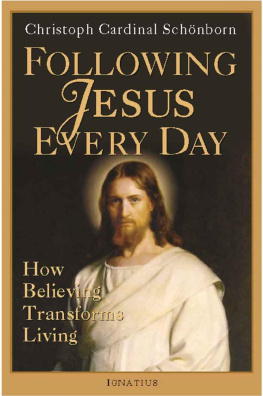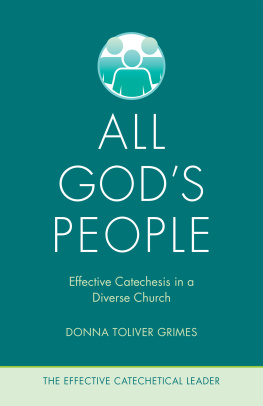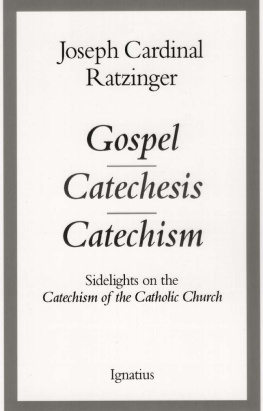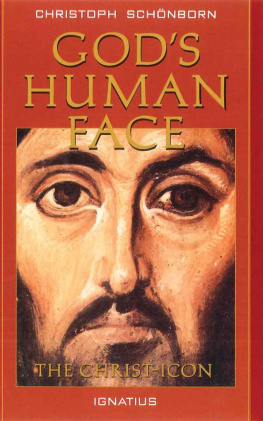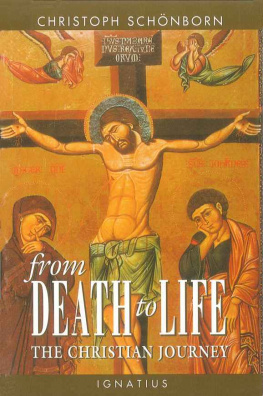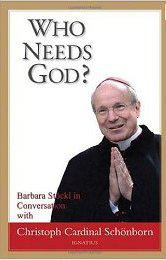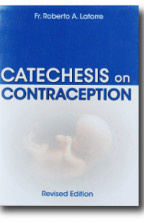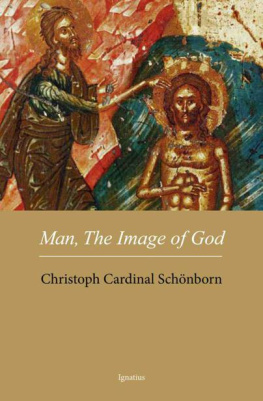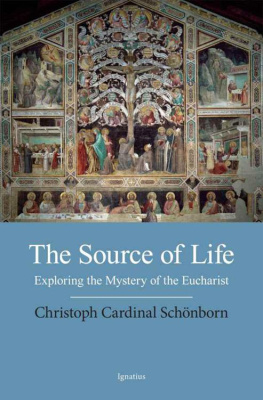FOLLOWING JESUS EVERY DAY
CHRISTOPH CARDINAL SCHNBORN
FOLLOWING JESUS
EVERY DAY
How Believing Transforms Living
Edited by Hubert Philipp Weber
Translated by Brian McNeil
IGNATIUS PRESS SAN FRANCISCO
Original German edition:
Jesus nachfolgen im Alltag
2004 by Verlag Herder GmbH, Freiburg im Breisgau
English translation 2006 by Crossroad Publishing Company, New York
All rights reserved
Unless otherwise noted, Scripture quotations (except those within citations) have been taken from the Revised Standard Version of the Holy Bible, Second Catholic Edition, 2006. The Revised Standard Version of the Holy Bible: the Old Testament, 1952, 2006; the Apocrypha, 1957, 2006; the New Testament, 1946, 2006; the Catholic Edition of the Old Testament, incorporating the Apocrypha, 1966, 2006; the Catholic Edition of the New Testament, 1965, 2006 by the Division of Christian Education of the National Council of the Churches of Christ in the United States of America. All rights reserved.
Excerpts from the Catechism of the Catholic Church , second edition, copyright 2000, Libreria Editrice Vaticana-United States Conference of Catholic Bishops, Washington, D.C. Used with permission. All rights reserved.
Cover painting by Leon Augustin Lhermitte
by restoretraditions.com
Cover design by Riz Boncan Marsella
Published in 2014 by Ignatius Press, San Francisco
By arrangement with Crossroad Publishing
All rights reserved
ISBN 978-1-58617-785-0
Library of Congress Control Number 2013930748
Printed in the United States of America
CONTENTS
EDITORS INTRODUCTION
On one Sunday evening each month, the archbishop of Vienna, Christoph Cardinal Schnborn, holds a catechesis in Saint Stephens Cathedral on central themes of the faith. In the church year 2001-2002, he dedicated a series of these addresses to the basic questions of Christian morality. The talks were recorded, and the texts were transcribed and photocopied. In order to make the catecheses available to a wider reading public, the editor has revised these transcripts. After the publication of the book Jesus als Christus erkennen (To know Jesus as the Christ) by Herder in 2002, a second volume now presents further impulses for the deepening of ones faith.
Preach the word, be urgent in season and out of season (2 Tim 4:2). This exhortation to Bishop Timothy is particularly relevant today, when it is a question of preaching Christian morality. This is no easy matter. There is a great temptation to moralize, to insist on merely obeying the rulesor else to seek to retain the favor of ones hearers by avoiding the more demanding questions and emphasizing above all the subjective aspects of moral insight. The path that Cardinal Schnborn takes here endeavors to avoid both extremes.
Catechesis means a strengthening in the faith. Accordingly, a catechesis on the foundations of morality is meant to strengthen the believing hearers in their Christian conduct and in the awareness that they, as moral beings, bear responsibility and are always at risk of falling into sin. But Cardinal Schnborn also continually points out that we are not left alone in our conduct, in the difficult task of coping with lifes challenges: Gods grace helps us, since it is present in the human person from the outset, as a gift that God invites us to grasp. Thanks to this divine help, good conduct is possible, as we see in the great examples of the saints. Thus, this cycle of catechesis leads from the basic questionWhat is ethical conduct, and how is it possible?to the question of holiness.
These talks have various sources, each of which makes its own contribution. The reflections on morality always begin with human experience. Morality belongs inseparably to human existence.
What then is the specific character of Christian morality? Why do we Christians consider the fact that we give a specific orientation to the conduct of our lives to be an essential element of our faith? Here the general human experience of life is enriched by another factor.
Human beings bear the marks of sin. What this means for us is fully revealed when we know that Jesus Christ has redeemed us. In other words, the Christian faith enlarges our awareness of sin. The first source of the faith is sacred Scripture, with which the tradition and the teaching of the Church are closely linked. Some of the theologians of the first millennium, the Church Fathers, are quoted here, and Saint Thomas Aquinas, the most famous teacher of the Western Church, has a special place in these catecheses. (Like Cardinal Schnborn, he too belonged to the Dominican order.) The liturgy and its texts are also important. When the catecheses address the Churchs teaching, they find their principal point of reference in the Catechism of the Catholic Church . The main point here is not to gain an external knowledge of the Catechism but rather to understand its affirmations as part of the totality of the faith and to find in them guidance for ones own life.
The Church possesses another rich treasury of experience, namely, the countless saints, whose exemplary lives help us to find an orientation today. In the course of two thousand years, they have imitated Christ in their lives in a tremendous variety of historical circumstances. This immense wealth offers us many elements that can enrich our Christian living.
The first catechesis investigates the foundations . Every human being bears in himself a sensitivity to the good and a yearning for the goal of life, namely, happiness. All the many commandments and prohibitions that exist in our life are at the service of this longing that is common to us all.
Ethical behavior is possible only where people act in freedom . The thirst for freedom is so strong that many risk their lives to attain this immeasurable good. But how do we deal with our freedom? When does freedom reach its highest point?
The third catechesis speaks of the conscience . There is always a risk that freedom may lead us astray if the inner compass of the conscience is lacking or if we do not pay attention to it. The question of the formation of the conscience and of our personal attitude is also important. This catechesis was held two months after the terrible attacks of September 11, 2001. What are we to say about the conscience of the terrorists? Naturally, the hero of the Christian conscience is a different figure altogether: not the fanatic, but the saint.
Freedom does not entitle us to do whatever comes into our heads. Freedom is closely linked to responsibility . Human conduct is moral because the human person himself can direct his actions and must therefore also accept the consequences of what he does. God gives us freedom but also responsibility. This is why we must also bear the consequences of our actions.
The fifth catechesis takes up a classic theme that is sometimes neglected in modern discussions: the passions . These are an element in human life. Many saints were passionate peopleand their emotions helped make their lives exemplary. Jesus too encounters us in the Gospels with his passions.
After this, the sixth catechesis speaks of the virtues . This word is no longer fashionable, but both the concept and the matter to which it refers were already familiar to the ancient Greek philosophers. The doctrine of the virtues tells us how we can change our lives in the direction of the good, in small and larger steps.
God does not leave us to our own devices when we act. The Christian is led along the path to God with the gifts of the Holy Spirit . Every Christian can identify times in his life when he has experienced the Spirit. But do we trust the Spirit to lead us? Are we open to the working of the Spirit?
A catechesis about Christian morality would be incomplete if it did not speak of sin . The point here is not to depress people, still less to make them ill, by a continuous emphasis on their sinfulness. Whenever the Christian faith speaks of sin, it does so in the context of redemption. Only the one whom Christ has set free knows the real gravity and weight of sin.
Next page
